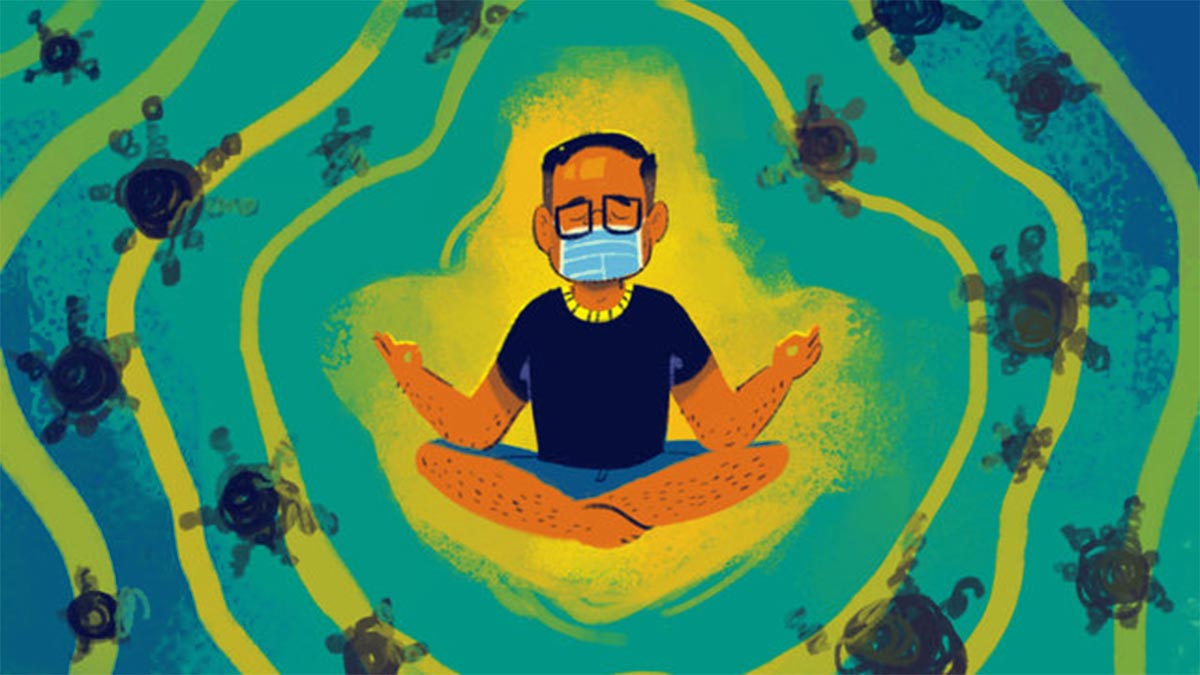Man is a social animal. We need to connect with other people. For most people, one of the hardest things about this lockdown is being separated from friends, family and loved ones. The lockdown has imposed a sense of confinement which can affect mental health as it adds to real fear and anxiety around the coronavirus pandemic.
The pandemic has spread its arms into just about every area of life at this point. Far from wreaking just medical havoc, it’s also affected many other realms—the economy, livelihoods, lifestyles, finally building up to change our mental health. Think of it this way, with over a billion people under some kind of lockdown in India; we are arguably leading the largest psychological experiment ever. Anxiety, frustration, panic attacks, loss or sudden increase of appetite, insomnia, depression, mood swings, delusions, fear and suicidal tendencies, and increasing cases of domestic violence have become quite common during the lockdown.
There’s no perfect or imperfect way to be in a crisis. There’s no ideal way to deal with what we are all going through now. No one was prepared for this pandemic! But these are the times, and this is the reality. We are all in this together, both literally in case of families and figuratively around the globe. The kids who studied abroad are back home— so are the parents who worked across borders. The extended family members are compelled to stay indoors, and they have no one but each other. It might feel, intimidating, sometimes even claustrophobic, because in this 21st century we aren’t designed to stay shut. We were so busy with our lives that we didn’t know and value time or relationship. This lapse of timelessness was throughout all classes. The wage-labourers would migrate to several states to work and come back once a year to meet their family members. The poor work to survive. The rich ones, however, even when they stay with their families have little time to spend with their family members. They are busy making more money or trying to safeguard their earnings.
One excellent instance would be phone conversation I recently had with one of my close associates. My associate had built a magnificent house some years ago, but he was so busy in his work that he could never inspect the entire building. Post the lockdown, for the first time, he explored the whole surrounding of his house, discovering several areas inside his walls that he hadn’t seen before. This was both amusing and astonishing for him. He was sad that he for all these years hadn’t seen his entire home which he had built with so much care and love.
Let’s not see this lockdown as a curse but a break to value time and relationship that we had ignored so far. It’s going to be a month and a half of this quarantine. The only thing that could get us going is the bond of love. In this mechanical life, this is our opportunity to connect with the loved ones. If we can’t do so, then our mental strength is going to break.
Anxiety disorders and sleeplessness are emerging as the toxic effects of COVID-19 lockdown. Higher incidents of domestic violence is also being reported during the lockdown, as people with troubled relationships are forced to be in each other’s presence all the time.
The fact of the matter is, we can’t generalise how a person would react to this lockdown. The needs of people from different sections of society will be different and should be addressed innovatively. For instance, women have a chance of bearing higher mental pressure as the workload increases, and they have to do most of the domestic work. This can’t both affect them mentally and physically. Another example would be that pregnant women have a higher chance of anxiety and depression. They have to routinely go for check-ups, leading to higher chances of getting infected. Though the government has taken several pre-emptive, proactive, practical measures, a mother would still be worried about her unborn child.
Despite all the odds, humans are still the most evolved species, built to outrun any difficulty. The most viable way to start with coping up is by making a routine like- create a morning exercise programme, work from home if possible, cook something different, get into online courses and read books. Connecting with loved ones can help maintain the normalcy in our lives, and it gives us a support system to rely on. We can take the time to schedule daily video calls, write emails or even send voice-notes – it will go a long way in helping you feel less alone. If you can’t avail of these, then simply sit with your family to talk. Make sure you are looking after yourself and your family, doing what you can to help get a good night’s sleep, eating well and doing yoga.
Notably, in Odisha, 30 psychiatrists from Cuttack and Bhubaneswar who are the members of the Odisha Branch of Indian Psychiatric Society, have switched to online counselling. They have circulated their email addresses and WhatsApp numbers and specific time slots for attending to distress calls free of cost. The experts at large are trying to address the panic triggered by the pandemic.



Get Social